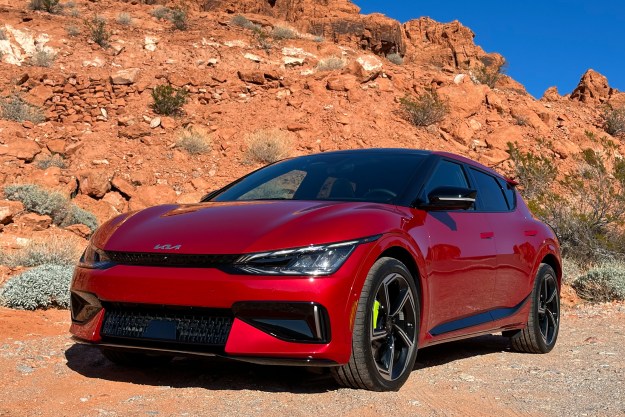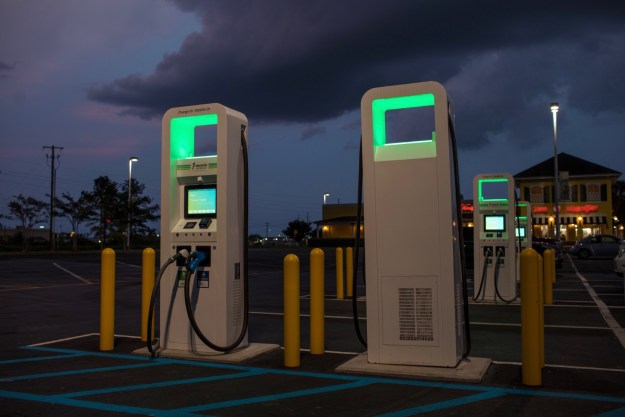
Instead of buying a new Nissan Leaf or Tesla Model 3, what if you could convert your existing car into an EV for a fraction of the cost? French startup Transition-One has developed a 5,000-euro ($5,600) kit to retrofit old diesel cars with all-electric powertrains, reports Bloomberg. Transition-One is only looking at the European market right now.
Retrofitting older cars with electric powertrains is nothing new. Several companies offer conversions for vintage cars, and it’s even something you can do in your garage. But Transition-One hopes to take the idea mainstream by offering an affordable option for some of the most popular cars in Europe. Its kit is compatible with many of the small hatchbacks that currently crowd European city streets, including the Renault Twingo, Citroën C1, Peugeot 107, Fiat 500, Toyota Aygo, and Volkswagen Polo.
A 2009 Renault Twingo with Transition-One’s conversion kit boasts a range of 180 kilometers (112 miles) per charge, according to Bloomberg. Renault’s own Zoe electric car has a range of 210 kilometers (130 miles), but it’s more expensive, Bloomberg noted. Five small battery packs are distributed throughout the Twingo, including three under the hood and two where the fuel tank used to be. The packs are sourced from a Tesla parts reseller, according to Bloomberg.
While most production electric cars lack conventional transmissions, owing to the abundance of torque produced by electric motors, Transition-One bolts an electric motor directly to a donor car’s existing gearbox. The charge port is installed where drivers would have previously filled the car up with fuel.
The conversion currently takes less than a day, but Transition-One is reportedly working on plans to retrofit cars even faster. The startup wants to raise 6 million euros ($6.6 million) to build a factory that will churn out up to 4,000 converted cars a year, according to Bloomberg. Transition-One is also seeking regulatory changes that would legitimize EV conversions, which are currently approved on a case-by-case basis, Bloomberg reports.
The mass retrofitting of older internal-combustion cars with electric powertrains is especially relevant in Europe. Paris is already banning older diesel cars from its city center in order to reduce air pollution, while some national governments have discussed ending sales of new internal-combustion cars entirely over the next few decades. An easy and affordable electric conversion could allow people to continue driving unrestricted — without having to buy a new car.
Editors' Recommendations
- Fake engine noises in electric cars need to die
- The fastest electric cars, ranked by 0-60 mph acceleration
- The cheapest electric cars you can buy
- What are the different types of electric car chargers?
- GM plans to phase out Apple CarPlay for EVs, go all-in on Android integration


